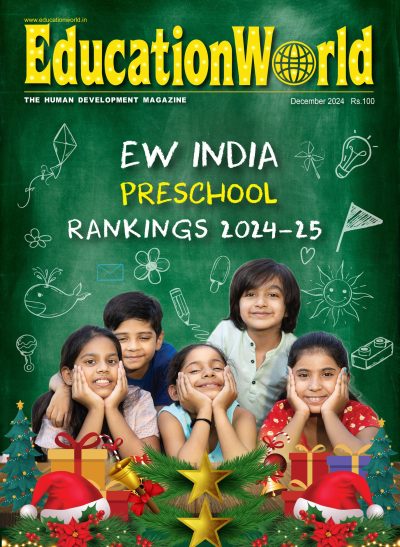Dr Ramya M, Assistant Professor, Dept of Humanities and Science, Manipal Academy of Higher Education Bengaluru

The globe is becoming more connected as a result of globalization and digitalization. Cultures collide, economies expand, and the pace of communication quickens as a direct effect of globalization. The world is becoming ever more complicated and unpredictable. In addition to these megatrends, humans are currently modifying the climate, animals and landscapes of the globe in ways that have never been seen before, which poses a threat to all life on the planet. In a century that has been defined by global warming and the never-ending strive for fairness, there has been a meteoric growth in the demand for environmentally responsible development practices. Sustainability is the most significant concept in contemporary environmental thought. However, sustainable development is not really its own discipline as it is a guiding theory and method for the academic disciplines and domains of interest such as education, the fields of commerce, science, art and engineering, as well as public policy, among others. Henceforth, the concept of sustainability has social, economic and environmental dimensions and has received widespread attention in numerous fields including education.
The role of education is distinct in the creation of a positive long-term impact because it is responsible for incorporating sustainability into its curriculum. Education for sustainability is not limited to just incorporating sustainable practices into academic curricula. It necessitates that educational institutions take a comprehensive strategy in order to rethink the curriculum, governance, campus management and community engagement. Education for sustainable growth helps individuals think and act sustainably. Consequently, it entails supplying students with excellent education throughout all stages of existence. Academic Institutions have recently recognized the vital role they might have in advancing humanity toward a sustainable future, one that satisfies today’s needs without risking the ability of tomorrow’s to do the same.
This has created challenges and opportunities for higher education institutions to diversify their educational offerings. In addition to their traditional roles of educating the public and doing research that benefits our economy and communities, institutions of higher learning have also long recognized the need of serving as role models for the kinds of behaviours that promote social justice and civility. Numerous universities throughout the globe make significant endeavours to establish resilient campuses. Higher Education Institutions (HEIs) are increasingly incorporating environmentally responsible practices into their overarching missions and plans, as well as their curricular offerings, research endeavours, student life, business practices and community connections. Education with the purpose of achieving sustainable development gives students the tools they need to make educated decisions and behave responsibly in order to protect the environment, ensure economic sustainability and create an equitable society for both current and future generations, all while valuing and appreciating the rich cultural variety of the world. The provision of chances for members of the community to use the campuses of higher education institutions as learning environments, through the provision of classes, seminars and other activities designed to empower people and improve local development, is an accountability that higher education universities have. The educational setting and courses should be regulated by interdisciplinary methods, which give a holistic approach to research on sustainability and are engrained in all academic fields and courses. These approaches should also be included in the learning environment.
Education for sustainable development
Today, the university is more than simply a degree. Preparing for the vast job market after graduation is equally crucial. True development occurs when educational institutions, particularly universities, fulfill their duty by fostering the sustainable growth of students. Students need the information, skills, attitudes and values to build a sustainable future. Critical and creative thinking, true interdisciplinary learning and a value system that stresses responsibility to self, others and the environment should be taught. Students have a growing desire for education that goes beyond just imparting information and skills in order to prepare them for employment as a result of the worldwide events described above. First and first, students want fresh points of view in order to be able to comprehend the dynamic environment in which they find themselves. In addition to that, it is necessary for them to take part in the world. Many of them also desire to contribute to the fight against poverty, the preservation of the environment and the development of an inclusive society. A fresh method of teaching is required in order to realize this educational goal. Education for sustainability offers this alternate method, with the objective of preparing students for roles as global citizens who are committed to sustainable development.
Several institutions are currently paving the way for a sustainable future by incorporating the concept of integrated campuses where universities are fully integrated with the cities in which they are located. Integrated campuses are able to fulfill human social requirements in a way that cities sometimes fail to do because of the magnitude of their operations. The extension of the campus fabric into its environs is good for the cultural and economic growth of the area. The close proximity of homes, places of employment and other facilities contribute to an increase in the social capital of campuses. These types of initiatives link the university with the surrounding community and provide opportunities for people from a wide range of backgrounds to utilize the facilities. Recently, universities are modifying their physical campuses and their regulations, incorporating sustainability throughout all degree programs and developing local and regional collaborations to improve the economy and ecosystems. A wide variety of stakeholders, planners and subject matter experts are brought into the process of developing comprehensive solutions; this serves as a significant support system for the actualization of sustainable development initiatives. It is gaining pace in academia as institutions collaborate and liaise with businesses to create tailored employment positions exclusively for students. These responsibilities provide students with the opportunity to obtain vital industrial experience and apply their academics to the job.
Institutional leadership teams now recognize that sustainability cannot be neglected and represents one of the most valuable opportunities for teaching and learning on their campuses. Higher education institutions worldwide have introduced new and more comprehensive sustainable development programs to help strike the delicate balance between economic development and resource and biodiversity conservation. When it comes to the physical and digital campus infrastructures, universities are currently confronting a number of significant changes to make a major contribution to this endeavor. Hence, a genuinely integrated campus would be an ideal solution to groom the students ready for a sustainable future. These systems that incorporate integrated planning are resilient in many different ways. The multi-disciplinary nature of the solutions guarantees that students can survive unforeseen problems and have the flexibility to adapt to new circumstances.
Also Read: Crafting Equitable Assessments: A Guide for the 21st Century Educator



















